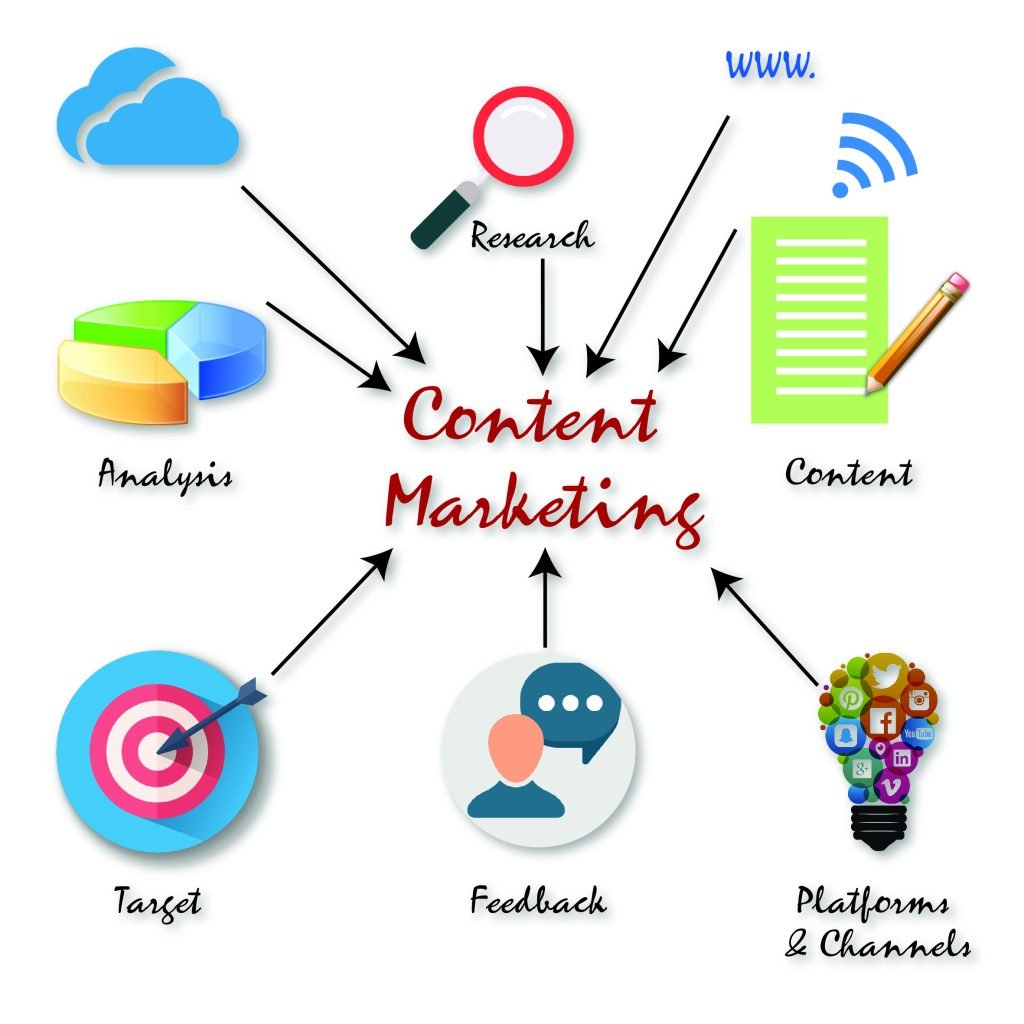How to use your Website for Content Marketing?
In the last few years, the marketing landscape in the country has changed significantly. While in the earlier times, you could just put out an advertisement and get your product promoted, audiences today have become smarter. The brands whose content adds value in some way or the other to people’s lives are the ones that are more prone to success in the long run. Likewise, you can use your website for content marketing in a cost effective way.
It is no doubt then, that a large number of companies, no matter how large or small, are investing heavily on putting out content that not just promotes their own business but also creates significant value to their customers’ lives. Marketers, individually or as part of a marketing communication agency, are now placing their bets on creating content relevant to their industry, leading to the emergence of content hubs as a potential marketing tool.
So, what exactly is a content hub? To simplify, content hubs are a repository of pages, containing your best content, focused around the area your company operates in, which is also intrinsically relevant to the company’s audience. It serves 4 major purposes:
1. Positioning – positioning involves highlighting the utility or day-to-day happenings of a particular company through content. It might include stories of employees, business partners or how a particular offering from the company helped a customer and created awareness about their brand in people’s minds.
2. Engagement – This kind of content talks mostly about the company’s culture and brand ethos. It is mostly aimed towards converting the prospective users into the consumers of the product.
3. Expertise – Taking the example of Hubspot, such kind of content tries to educate the people with domain specific content or give solutions to their day-to-day problems, in terms of personal or professional growth. Hubspot, a popular marketing software company, regularly publishes content focused around how customers and marketers can use its tools and services to accelerate the growth of their business or learn a new skill set.
4. Influence – one of the hottest trends in the world of marketing and digital is the emergence of influencer marketing. Companies create content around the utility derived by influencers or thought leaders from using their products.
A pertinent question that companies often are confused about is if they should create a standalone content hub to put out content or should they integrate it inside their corporate portal itself?
To answer this, a few considerations always play an important role, which are as follows:
Does your website enjoy search engine visibility?
If your company’s corporate website has a higher visibility and ranking on the search engines, you can integrate the content hub well within itself, since any web page that is associated with a high ranked website can easily gain traffic and visits without having to create an entire funnel again to drive engagement with your content. In such a scenario, creating another domain to serve as your content hub is debatable.
Do you want to be seen as an authority in the industry you operate in?
Most often, companies that create a standalone content hub want to be seen as an authoritative figure in the industry without having any biases towards its own products or services. For example, international brand LÓREAL debuted a website called ‘Fab Beauty’ a few years ago that took into perspective, the entire beauty industry without any hard selling or bias towards its own products.
If your company is planning to not be 100% unbiased in approach and doesn’t have multiple products or services to offer, it’s preferable to move your content to your own corporate website rather than investing in a separate online entity.
Is your website an idle website?
More often than not, corporate or enterprise websites do not change much with time. As we wrote about it some time back, an idle website creates a negative impression of the company in the customer or business partner’s mind and also brings the credibility of your business in question.
An idle website also creates a competitive disadvantage for the company, since your competitor’s fresh and regularly updated website not only creates a good impression on prospective customers but also leads to increase in traffic and visibility of the organisation on the web.
Putting out fresh and relevant content is hence, a prerogative to success in today’s content marketing landscape.
Do you want to generate leads with your content?
Content marketing, especially the subscription and email newsletters, can provide analytical, real-time data for your company to generate newer leads. Having a content hub gives you the power to use data and target new prospects.
That is why, it is vital to analyse if your corporate website is good enough to generate subscriptions on its own.
What is your brand’s positioning?
A market leading brand, which enjoys certain popularity among the masses can invest in driving its thought leadership over to a new domain. Since it has been around for a long time, a well-positioned brand enjoys the trust of the customer.
If you are a new brand that wants to invest in creating a standalone content hub, it will require patience and constant trial-and-error to finally be able to see significant results and engagement for your content.
Get in touch with Ascezen Consulting today to know how we can create and run a content intensive website for your business.





